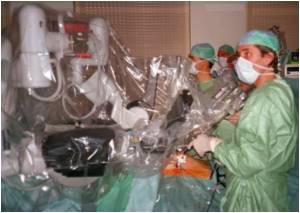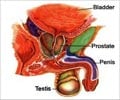
"There has been some controversy over the value of PSA screening beginning at age 40, but the data from this study strongly suggests that early screening can help us stratify patients' risk and identify those who need to be followed most closely from this younger age group. That, in turn, may help save lives," says Judd W. Moul, Professor of Urologic Surgery and Director of the Duke Prostate Center and senior author of the paper.
Researchers used the Duke Prostate Center database to identify 4,568 men who had PSA tests during the past 20 years and who were diagnosed with prostate cancer.
Investigators tracked the patients' age and race and analyzed each variable to assess any association with risk of death from prostate cancer or other causes.
The median age of the men at baseline was 65. The median baseline PSA was 4.5, and the average follow-up period was over nine years.
Researchers found that 3.5 percent of the men died from prostate cancer during the study period, while more than 20 percent died from other causes.
Advertisement
And those with baseline values of greater than 10 were 11 times more likely to die from prostate cancer than were men with PSAs under 2.5.
Advertisement
The study appeared early online in the journal Cancer.
Source-ANI









![Prostate Specific Antigen [PSA] Prostate Specific Antigen [PSA]](https://www.medindia.net/images/common/patientinfo/120_100/prostate-specific-antigen.jpg)





